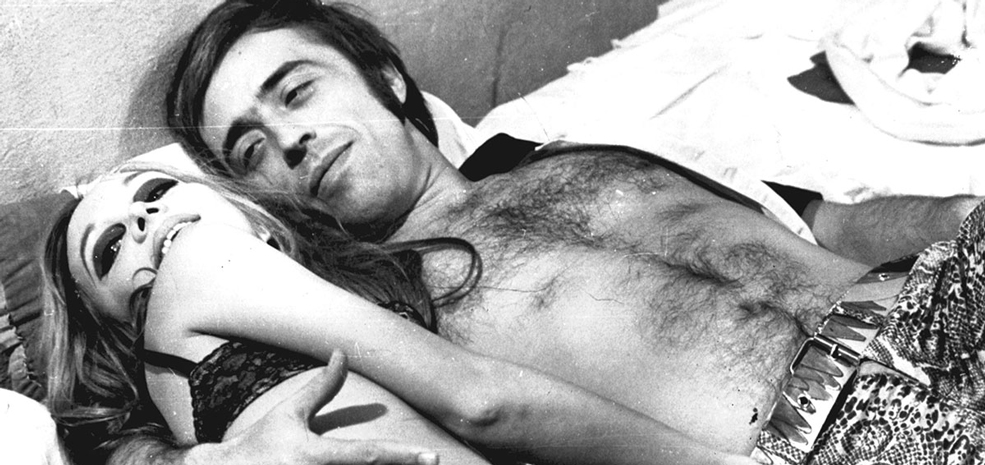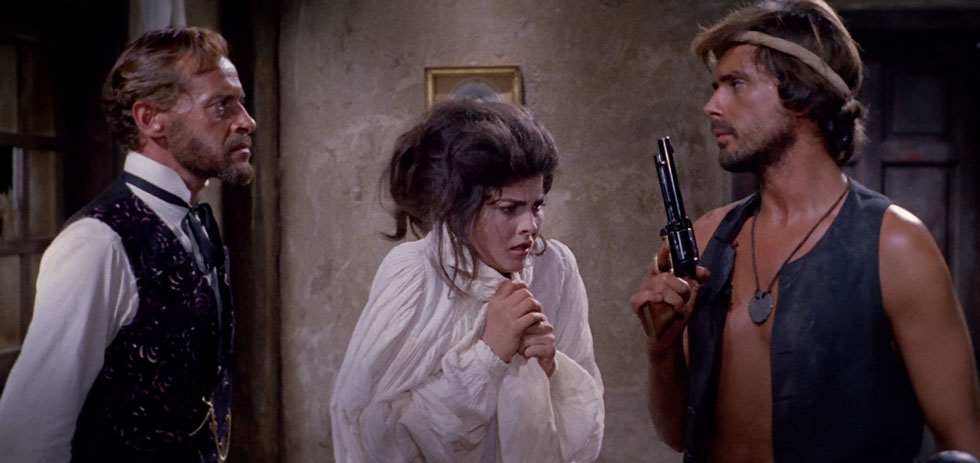At the moment, Chris Fujiwara’s website is under construction, so a full CV has to be assembled piecemeal. He’s written books on Jacques Tourneur, Otto Preminger and, most recently, Jerry Lewis for the Contemporary Film Directors series. He put together the 2007 collection Defining Moments in Cinema; a veritable explosion of hardcore cinephilia from writers across the globe, in the guise of an innocuous ‘memorable movie moments’ coffee-table book. Last year he stepped down as the director of the Edinburgh Film Festival, but still continues his work as a programmer.
This year he bring us the Destruction Cinema sidebar at Sydney Film Festival, which showcase five anarchic titles from the 60’s and 70’s that fall under the broad rubric of cinematic rule-breaking. I caught up on with Chris to talk about his selection, and in a moment of self-indulgence, asked about his time as a member of the great 90’s instrumental rock band Cul-de-sac, which incidentally unearthed a great anecdote of destruction.
How did the Destruction Cinema retrospective come into place?
I’ve known Nashen [Moodley, Sydney Film Festival’s director] for a number of years, and Nashen and I were talking late last year, and he asked if I’d like to do a guest programming stint, and if I had any ideas. Because he had done last year with Gabe Klinger the James Benning section, so this is sort of a follow-on to that in a sense. One of the things I proposed to him was this idea of ‘destruction’, which is a theme dear to my heart.
The one term that jumps out to me at summing up the nature of the films chosen, that’s in the program description, is ‘anti-masterpiece’. How would you define that term?
It could mean a few things. It could mean in the sense of Artaud – Artaud wrote a very famous piece called ‘No More Masterpieces’, where he said, you know, ‘let’s get rid of the whole bourgeois concept of great art’. I think the films in this section are all in some sense great films, but they’re also films that are against the idea of greatness in the classical sense. They’re not classical films, they are very overtly unconventional. And not in a fake way, not just to gain points. They’re really trying to do something new, trying to do something different, something that’s destructive. Something that really breaks with the existing tradition of film. That was the guiding concept of [this program], and I think these films really do all belong there.
They work especially well in the context of a festival, where we’re getting the prize-winners from Cannes, Venice, and Berlin… the films you’ve chosen stand in stark contrast to a certain mode of ‘festival film’. Do you see the Destruction Cinema titles as something of a palate cleanser, right at the end of the festival?
(laughs) That’s a good way to look at it, yeah.
You had to narrow it down to just five films, and each film is from the 60’s and 70’s. Was that the era you intended to focus on?
Yeah, because when you have a concept like ‘destruction’, you know, that could be so wide – you could do a thirty film series, or a series of films all year. I had to give it some parameters, so I decided to stick to the 60’s and 70’s, which is pretty well known as a period of exploration and change; certainly social change, but also cinematic change. It’s a well-known story, but I wanted to focus on films that weren’t so well-known, so rather than showing Easy Rider, or even Zabriskie Point for that matter, I thought I would show these films.

If there’s a theme with them, apart from the Herzog film, which is clearly part of the New German Cinema, these films come after a well-known ‘movement’. God Told Me To is from near the end of the New Hollywood boom. Deux Fois is from the Zanzibar group, formed after the Nouvelle Vague. The Red Light Bandit comes after Brazil’s Cinemanovo movement. Was that a conscious choice, to pick films that came after a spotlight movement in their respective national cinemas?
Yes, in a sense. Red Light Bandit is an excellent example of a film that is in rebellion against an earlier avant-garde that had now become traditional. You might be able to same the same thing about Deux Fois in relation to the classics of the French New Wave. God Told Me To is a special case, in that it sits within the exploitation genre – I see it a bit like Cronenberg’s films at that time, that were doing something radical within the genre, without being linked up to a movement that critics had identified as having to do with art cinema. But yes, each of the films in some way is in revolt – implicitly or explicitly – against an earlier tradition of filmmaking.
Do you see them as being more in revolt against commercial cinema, or an already-established art cinema?
Both. Because the already-established art cinema, and you could say the same thing about today… the art cinema, the films may be in some sense left-wing, or progressive politically, or a little avant-garde, but they’re addressing the audience in a way that people expect and know how to deal with. Those are the films that are ‘arthouse hits’, that are comfortable. Even if they’re ‘uncomfortable’, like a Michael Haneke film or something, they’re also comfortable. The idea of this ‘Destruction Cinema’ to me, was to find something a little more hardcore, and a little more challenging in how it relates to an audience.
Do you know much about the critical reception of each film in its day?
Deux Fois, I don’t think many people saw it, but it was written about in the French cinematic press, who responded to it and recognised it as a great work. God Told Me To… that film was kinda buried. That was with New World, Roger Corman’s company, and it wasn’t marketed very successfully.
It’s been under a different title in Australia – Demon.
I think it was called Demon in the States too, when it first came out. Even Dwarfs Started Small, that was a film that pissed a lot of people off, as Herzog still talks about. The reaction to that was very negative, more for how the politics of it were understood.

Django, Kill! was the only film I hadn’t heard of from the program, could you speak a little about that one?
That was the first feature film of the director Giulio Questi, who then went on to make two more films in commercial genres – one was a thriller, the other was a horror film, and he sorta disappeared, only to emerge years later making personal/experimental films; he passed away quite recently. His films were regarded at the time as very strange, as aberrations, and Django Kill was another film that wasn’t handled well by its distributor, and they cut it. There’s some violence in it that’s pretty shocking. At that time, there was very little criticism of Italian genre films; that’s something that only developed much later. Within in the past 15 years are so, there’s risen a body of writing and understanding of Italian genre cinema that’s quite interesting. But for a long time, even films by people as great as Mario Bava, were dismissed. But Questi’s films show how wrong that is.
To finish up, and also to go off-topic, I only found out recently that you were once a member of the original line-up of Cul-de-sac, who I’m a huge fan of. Do have any anecdotes about that time?
Cul-de-sac, wow. Anecdotes… supposedly we were the first band that was called ‘post-rock’. Simon Reynolds coined that term, if my history is right. He talked about us, and Tortoise, and somebody else. We rehearsed in the guitar player’s living room, twice a week, for two hours, and that’s what I mainly remember… the record with John Fahey was incredible, because he came in and then threw out all the material. We started to record it, and he said ‘you know, I don’t like what we’re doing’ and so he made us rethink what we were gonna do, radically. And what that album is, that’s the result. But it was really quite a traumatic experience for Glenn [Jones], our guitar player, because he was a huge admirer of John Fahey, it was his idea to do this. He had to go through a lot of adjustment, a lot of soul searching to get to do it.
